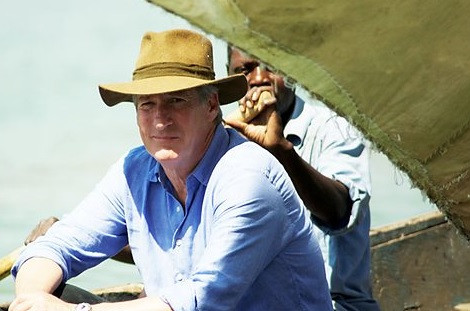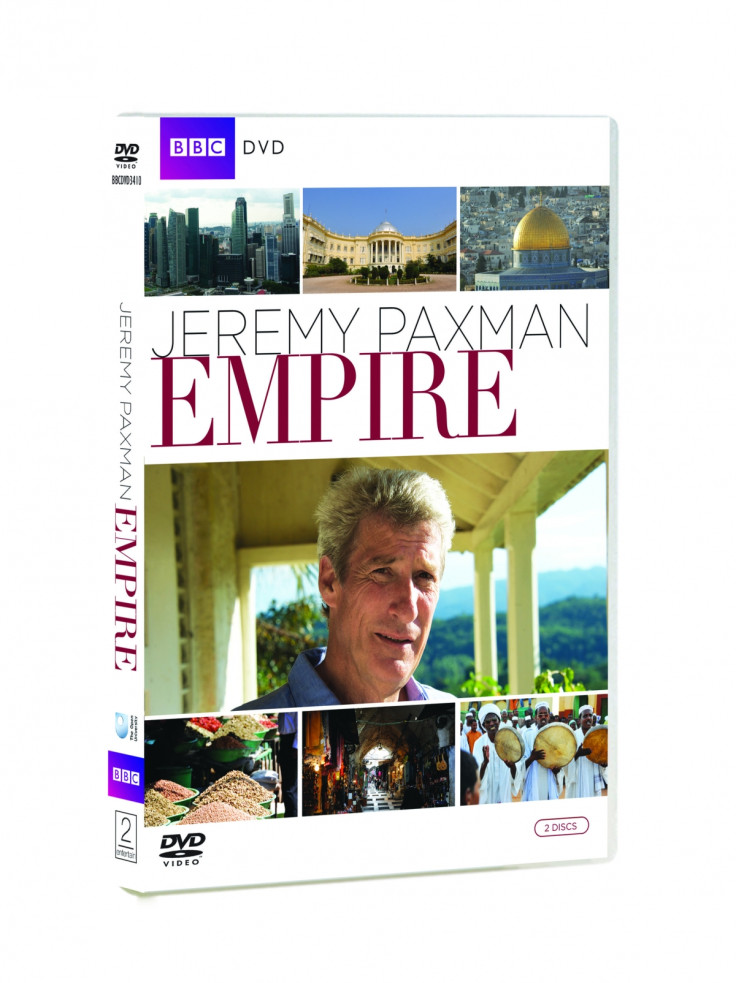BBC's Empire Review: Join Jeremy Paxman on his British Odyssey

Last week I bumped into Jeremy Paxman and congratulated him on his new TV series based on his book entitled Empire.
Having his full attention, I seized the opportunity to tell him about my weekly art column in IBTimes UK and that I would be interested to hear his comments.
His response was that I should sometimes surprise my audience and that is what gave me the topic of today's article: The power and knowledge of history and how it can shape us.
Most of us wouldn't have the time, the will, or the motivation to go back to our British history books and would prefer shamelessly to be spoon-fed.
Rediscovering Our Roots
Newsnight's tenacious inquisitor, Paxman, is on a mission to urge the British people to take a long, hard look at our 400 years of empire-building and how it has shaped us and others.
In his book Empire, he calls collective amnesia the fact that the British have decided to ignore the current implications of the story of the empire.
As I so do not wish to be part of the Collective Amnesiacs, for my last summer holidays, I brought Paxman's book 'with me to learn more about the country I live in.
The book traces British history from its colonies, ancestors and traditions.
The introduction was captivating full of humorous, clever and critical remarks: "Without understanding how we looked at the rest of the world, we cannot really understand ourselves".
But the rest of the book left me disappointed, as loaded with facts and information, it lacked Paxman's argumentative and critical self.
I felt like the emperor was stripped bare from his clothes. His views were overshadowed by facts.

Book Adaptation
So the TV series intrigued me as facts are always more appealing visually and I am a visual person.
As each series is 1 hour and only one has been played so far I relied on the clips and few hours of the first one.
Paxman makes us travel far and fast.
His Jules Verne's Around the World in 80 days world marathon- India, Hong Kong, Israel, Canada, Jamaica, Sudan, Egypt, Kenya, Malawi and South Africa is an expedition of detailed investigation of the British Empire from its colonies, traditions, sports, ambitions, traits, and ancestors.
Its content has been criticised of missing Paxman's polemic and usual critical character, but this is still hard to judge as only the first series have been aired on television expect if you decide to buy the DVD.
It will be disappointing if Paxman comes across as the instructive and educational, well-mannered and well-spoken narrator, story-teller void of his usual combative and critical spirit.
Britain's Global Influence
For the first series, Paxman traces the story of the British Empire by traveling to India, where local soldiers and local maharajahs helped a handful of British traders to take over vast areas of land.
This will lead him to Egypt to the desert and Lawrence of Arabia's story and then to Palestine to touch on the Middle East conflict still a problem to this day.
The camerawork is very good. The trips are beautifully shot, the images mesmerising almost like flicking through the pages of National Geographic. We feel tuned in to our TV by the scenery.
However, the programme is very BBC type with its repeated and predictable formula of an on-screen presenter and interrupted cuts from images back to the presenter almost disturbing the flow.
Paxman's strong character almost portrayed as the apostle of British Enlightenment overpowers the subject matter. His persona overshadows the theme. Do not forget we are seeking for the lost Empire.
For the second episode, Paxman continues to find traces of the British Empire in India, Singapore, Canada and Kenya where traders, conquerors and settlers spread the British way around the world.
These trips feel pretty exhausting so we are better positioned to be exploring each country and its stories from the comfort of our sofa seat accompanied with Paxman's instructive and directive voice.
In his book, he thanks his cameraman and audio person to have put up with incessant travel and inconvenience and his television researchers for their maps, books and diarrhoea pills.
His journey continues with more travels and questions. He investigates the growth of a peculiarly British type of hero - adventurer, gentleman, amateur, sportsman and decent chap - and a peculiarly British type of obsession - sport, the empire at play.
He travels to East Africa in the footsteps of Victorian explorers in search of the source of the Nile, to Khartoum in Sudan to tell the story of General Gordon - a half-crazed visionary who 'played the game' to the hilt, then to Hong Kong where the British indulged their passion for horse racing by building a spectacular race course, and to Jamaica where the greatest imperial game of all - cricket - became a battleground for racial equality.
His quest continues in the series with a close look on how the empire began as a pirates' treasure hunt and grew into an informal empire based on trade and developed into a global financial network.
He travels from Jamaica, where sugar made plantation owners rich on the backs of African slaves, to Calcutta, where British traders became the new princes of India.
But what do we learn through Paxman's restless trips, journeys, and images except pure observations?
Paxman then heads to Hong Kong, where British-supplied opium threatened to turn the Chinese into a nation of drug addicts - leading to the brutal opium wars, in which Britain triumphed and took the island of Hong Kong as booty.
The stories are rendered with a mix of real and historic footage and images that make them even more interesting to follow.
For the last series, Paxman tells the extraordinary story of how a desire for conquest became a mission to improve the rest of mankind, especially in Africa, and how that mission shaded into an unquestioning belief that Britain could - and should - rule the world.
But Jeremy tells also something personal and that is his desire and hunger for unlimited knowledge. Through this journey, will his appetite for it be suppressed?
As his quest for knowledge is insatiable we feel drawn to it and now curious ourselves about the British Empire. I hope that the series will enlighten us.
The next episode is on the 27th of February.
Virginia Damtsa is the co-founder of contemporary art gallery Riflemaker with Tot Taylor.
© Copyright IBTimes 2025. All rights reserved.





















